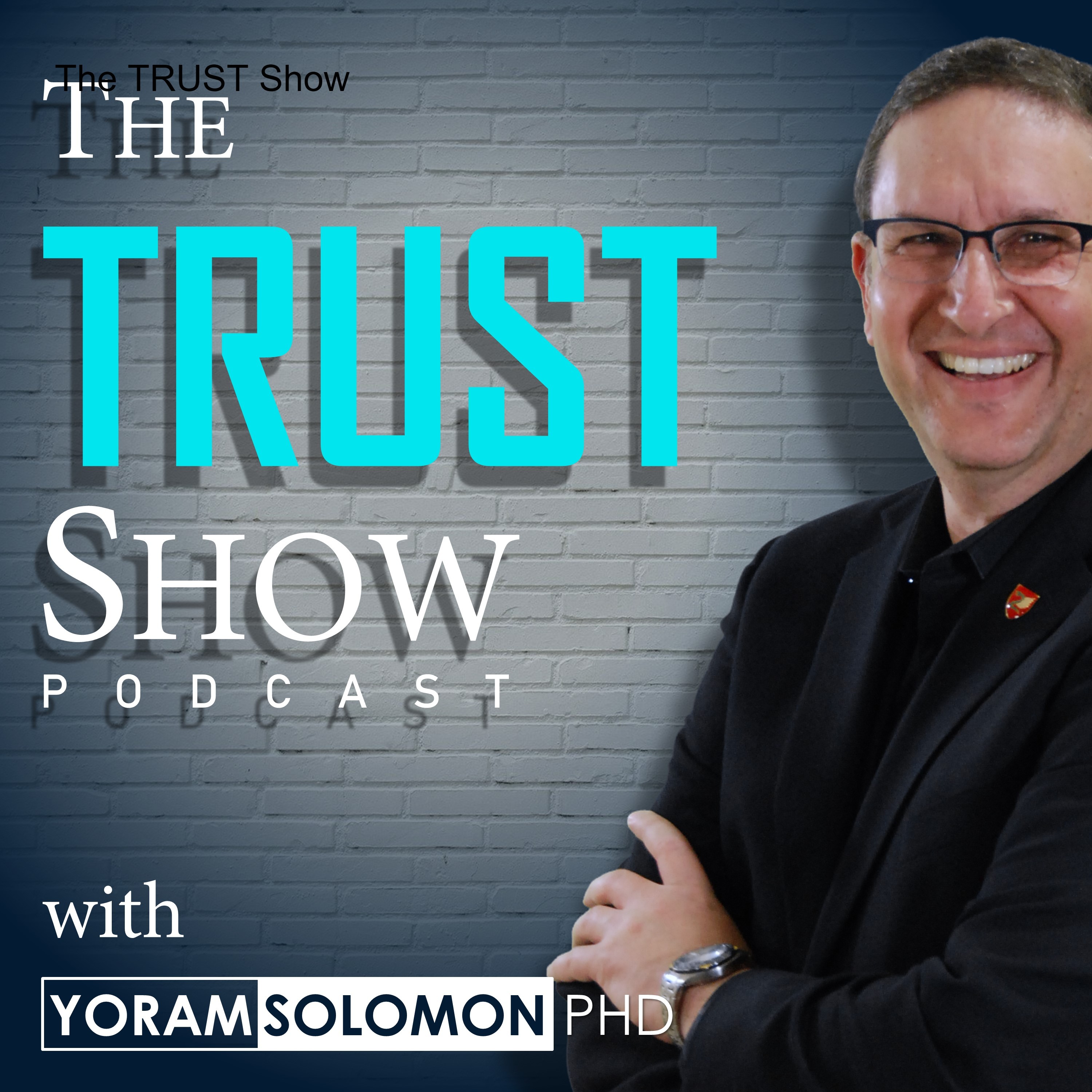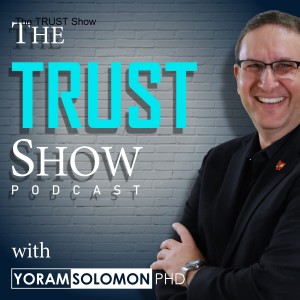
16.5K
Downloads
194
Episodes
Trust is not what you think it is. It is not absolute or universal. Trust is relative. The same behavior that would cause one person to trust you could cause another person to distrust you. The level of trust someone has in you is the product of their trustfulness (their willingness to trust other people) and your trustworthiness. There is almost (I said ALMOST) nothing you can do about the former, and everything you can do about the latter. Because of that, you must evaluate your own trustworthiness one relationship at a time, separately. Odds are, though, that the same behaviors that are holding you back from being more trusted in one relationship are holding you back from being more trusted in other relationships. Welcome to The Trust Show. I’m your host, Yoram Solomon, a top 10 trust expert and researcher, the author of the book of trust, and the creator of the Trust Habits® workshop that helps people and organizations form new habits that change old behaviors, build trust, and transform organizations. In this educational podcast, I will challenge you to think differently about trust, through the 8 laws of trust and the 6 components of trustworthiness. I will share my own stories, experiences of others, trust research, and sometimes, reflect on a news item. And through those, I will show you how to build trust, be trusted, and know who to trust. Because the answer to this question will have the biggest impact on your personal and professional, success or failure: can you be trusted?
Episodes

Tuesday Mar 18, 2025
S16E11: The Three Components That Shape Customer Trust in Every Interaction
Tuesday Mar 18, 2025
Tuesday Mar 18, 2025
Trust isn’t just about who you are—it’s also about what you do in every interaction with a customer. In this episode, I continue reading Chapter 10 of The Trust Premium, focusing on the three key components that shape trust in the moment: Positivity, Time, and Intimacy. I discuss why radical honesty (No-BS) and empathy are essential for building trust, how first impressions and consistent behavior impact trust over time, and the role of deeper, richer interactions in accelerating trust. I also explore why bad is stronger than good—how a single negative action can outweigh multiple positive ones, making trust much easier to lose than to build.

No comments yet. Be the first to say something!